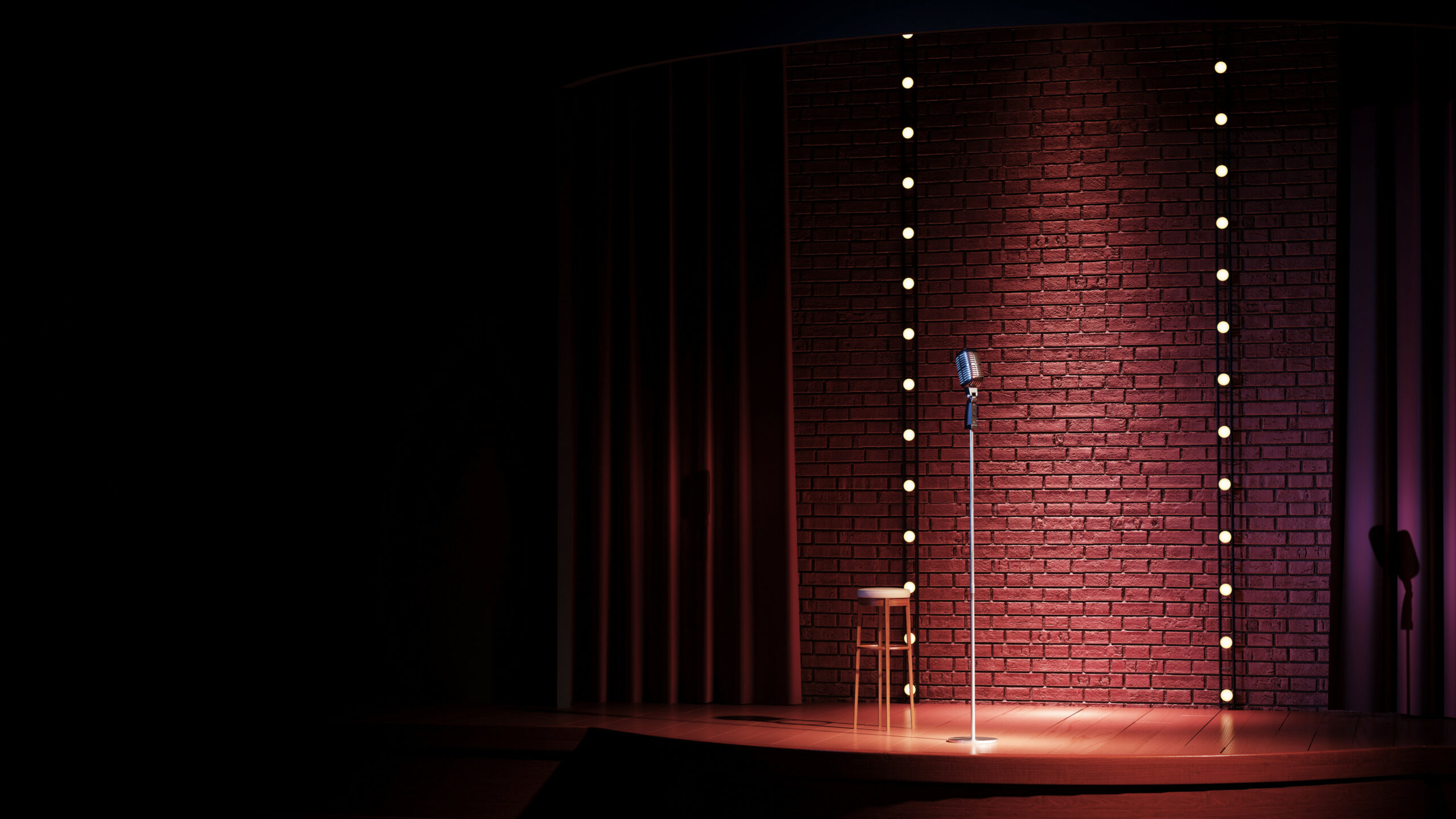Maureen Younger offers her advice for budding comedians on how to secure gigs and get your start on the comedy scene
In the old days, you’d buy a copy of Time Out, scan the Comedy pages, and ring up those listings looking for ‘interested acts’ to give them a call. Now, of course, it’s all changed. Here are some tips to get you started.
Start with the old favourites
Certain clubs are known for being the club where many comics first flap their comedy wings. In London, it’s Downstairs at the King’s Head. For those pluckier souls in London and Manchester, there is the King Gong show at The Comedy Store. Manchester also has Beat the Frog and The Comedy Balloon. In Scotland, The Stand’s Red Raw night for new comics is so popular that new applications are only accepted during April and October. However, in Glasgow there’s also the Yes Bar and The Comedy Creche; in Edinburgh, Monkey Barrel holds a weekly New Act Competition, Top Banana and The Gilded Balloon runs a monthly new act and new material night.
Ask a lot of questions
The standard joke among comics is the one where, on hearing a fellow comic mention a gig they’ve just done, you respond by asking: Who books that then? And like most jokes, it’s funny because it’s true. Gigging is a great way to network with fellow comics and discuss gigs and possible leads for bookers you’re currently not working for. Throughout your career you’ll find that a lot of work comes via other comics whether it’s sourcing information or fellow comics recommending you to other promoters.
Use social media
Thanks to social media, you can check out the Twitter feed and Facebook pages of comics who you feel are at your level, see what gigs they are doing and then contact the booker and ask for a spot. If you’re new, hone in on gigs that are free entry or low entry, and ones with numerous comics on the bill. Chances are that these will be open mic nights, and they need acts like YOU!
There are also several closed groups on Facebook, which (once you’ve been on the circuit for a while) a fellow comic will hopefully add you onto. There are also several regional comedy forums that you can join. One of the easiest ways of finding gigs is typing ‘comedy open mic night’ into the search filter on Facebook, and you’ll be inundated with suggestions.
Make sure you’re asked back
Once you’ve got the gig, ensure they want you back. Firstly, be funny – that always helps. But being professional won’t go amiss either. The main criteria are: turn up, be on time and do your time. If you’re booked to do 5 minutes, do precisely that. Don’t be tempted to do more – whether it’s because nobody has laughed and you’re desperate to hear someone chuckle before you leave the stage or because you have the audience in stitches. In the latter case, remember the adage: always leave the audience wanting more.
Keep adding to your material
If you’re asked back, don’t be tempted to throw away all of your best material just because the promoter will have heard it before. This could mean turning up with different but much weaker material. It’s okay: promoters know comics repeat jokes. It’s fine to retain some of that material, but ideally add one or two newer well-written jokes into the mix. Any promoter worth their salt will notice. It tells them you are capable of doing a longer set and you’re serious about comedy.
Play the game
When you finally become semi-professional and are looking to gig for clubs with a view to paid work, you will often have to play the game, which can mean doing several open spots before you progress. This can happen whatever level you’re at. You can be doing weekends at one respected club and still have to do an open spot elsewhere.
No matter if you feel you’ve proved your worth or you’re more than capable of doing the gig, it’s the promoter’s choice, and if they want you to do an open spot and then another one then you need to swallow your pride, do it and preferably rip the room. However, I’ve had experience of clubs that use the open spot system as a means to have a cheap middle spot. If someone offers you a 20-minute open spot, take note: there is no such thing. If someone books you for 20, they know you can do the job and they should pay you for it.
Last but not least… be funny!
As mentioned above, comics soon discover that a lot of work comes initially via word of mouth and this will continue throughout their career. Getting a nudge from a comic that a promoter trusts can really open doors. It’s also worth noting that the MC is often the eyes and ears of the promoter and will report directly to them how all of the acts fared – both on and off stage. This is particularly true if they work regularly for the club. After all, regular comperes are booked precisely because the promoter trusts them. So, although it sounds obvious, if other acts and/or promoters find you funny, they will recommend you to other clubs. In short, remember the world of comedy is a very small one and word – either good or bad – gets around very quickly.
Maureen Younger works as a stand up comedian, writer and actor. A talented linguist, Maureen has also performed stand up in German and French. Gigs range from being the support act for the entire West End run of The Naked Magicians; supporting Shazia Mirza on tour; to performing at the Jamaica vs The World shows at the Shepherds Bush Empire. As an actor, her roles range from playing an angry German housewife in Band of Brothers to workshopping Philoctetes at the National Theatre Studio. Maureen has also written articles for various online magazines including Standard Issue Magazine, Her Edit and Psychologies Life Lab.
Connect with Maureen on Twitter, Facebook, YouTube and Instagram.



















